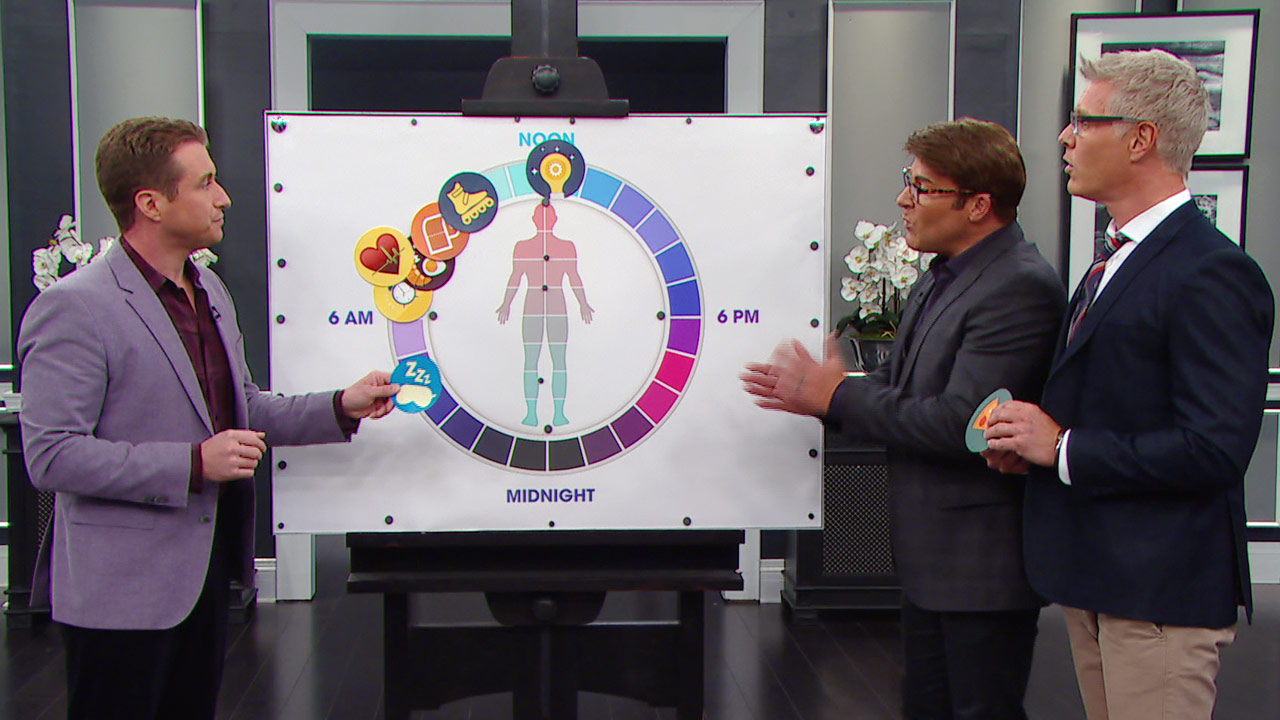Many people associate the circadian rhythm as the root of jet lag but did you know it also controls most plants and animals’ day-night cycle? This rhythm is largely controlled by the hormones serotonin — which controls the day cycle — and melatonin which controls the night cycle. Alternative health expert Bryce Wylde unlocks the secrets that make our bodies tick and reveals how to take advantage of your body’s clock.
Wake Up
Best time to wakeup is the time it takes you to achieve seven to eight hours of sleep. You need approximately five complete cycles of sleep to achieve a proper restful state. It takes the average person 90 minutes to go through a single cycle of sleep.
Don’t forget your sleep hygiene; cool and dark rooms create the perfect environment to get the best sleep.
Breakfast
Have your breakfast within an hour of waking up. It’s all about glycemic index to make sure our body’s insulin does not peak or drop off too fast.
Bowel Movement
When you’ve got to go, you’ve got to go, but the best time to release your first bowel movement is within proximity to eating breakfast. Eating stimulates our bodies to move out whatever you have in your system to make room for what’s incoming. Another reason why bowel movements occur after eating is to avoid bacterial imbalance in your intestines.
If your bowel movement doesn’t naturally happen after you eat, consider increasing your fibre intake or trying out probiotics.
Exercise
The best time to exercise is within an hour after having your breakfast. Apart from serotonin and melatonin, the circadian rhythm also controls cortisol levels, which is highest in the morning. Cortisol is a hormone that can aid in the metabolism of fat, protein and carbohydrates.
Brainstorming
The best time to brainstorm is before noon or your lunch. The circadian rhythm controls certain neurohormones — like dopamine and beta-phenylethylamine (PEA) — that keep us alert because they control blood vessels which stimulate oxygen flow to the brain. After eating lunch, your body becomes tired from digesting the food.
Heart Attack
There is never a good time to have a heart attack but the most common time is Monday morning. Why? In the morning, blood pressure tends to spikes an hour after you wake up and studies show more heart attacks occur on Mondays than any other day of the week. The body is more vulnerable to heart attacks on Monday because of weekend indulgences — like drinking and eating habits — and work stress. This mixture of higher blood pressure, work anxiety and excess indulgence can take a toll on your health.
Napping
The best time to nap is in the mid-afternoon, but for no longer than 20 minutes. This short nap is sometimes referred to as the ‘trucker’s nap’. After 20 minutes, you quickly enter into a deep phase of sleep, and to wake up abruptly from that descent will make you groggy.
Dinner
It is recommended to eat at least every three to four hours to maintain a good blood sugar level. Between lunch and dinner, make sure to have a small snack. Typically, dinner should be around 6:30 p.m. if you’ve eaten lunch at noon.
Caveat: between dinner and breakfast, make sure dinner is the smaller meal out of the two.
